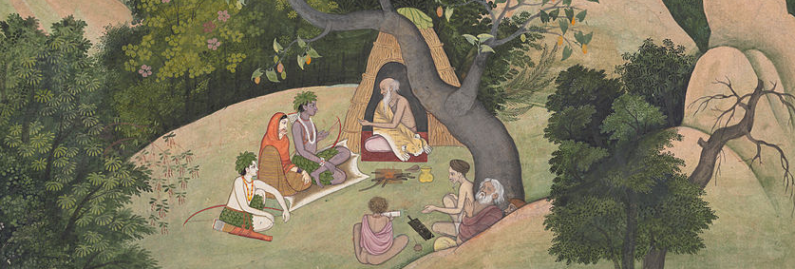by Zabaan | Jun 3, 2015 | Ancient Greek, Classical languages, Literature, Sanskrit
In Greek literature the gods are known as the ἄμβροτοι (ambrotoi), the plural of ἄμβροτος (ambrotos), meaning immortal. Despite its different appearance, this word exactly corresponds to Sanskrit अमृतः (amṛtaḥ), which has retained a more original form, from the...

by Zabaan | Jun 2, 2015 | Etymology, Sanskrit
To students who are new to Hindi, terms such as विद्यार्थी (vidyārthī = student) or अध्यापक (adhyāpaka = teacher) might seem a bit daunting and, without doubt, not only a bit too complicated for what they describe. That native speakers are, to a certain extent,...
by Zabaan | Jun 1, 2015 | Hindi, Linguistics, Sanskrit
The vowels ए (ē) and ओ (ō) of Sanskrit, and therefore also of Hindi and other North Indian languages that have sprung from Sanskrit, are always long. They do not have corresponding short forms, such as इ (i) and उ (u) have the corresponding forms ई (ī) and ऊ (ū). This...

by Zabaan | May 31, 2015 | Classical languages, Norse Mythology, Old English, Old Norse
In Norse myth valhöll (the Old Norse term for valhalla) is the hall where warriors feast at Odin’s table after dying in battle. The word is a compound consisting of val (wæl in Old English), the slain and höll (heall in Old English),...
by Zabaan | May 31, 2015 | Ancient Greek, Classical languages, Literature, Sanskrit
What ancient Greek and Sanskrit can tell us about our thinking Apparently daunted by the task of representing such momentous events of history as the battle of Agincourt, the chorus of Shakespeare’s Henry V clamours desperately: “O for a Muse of fire, that...


